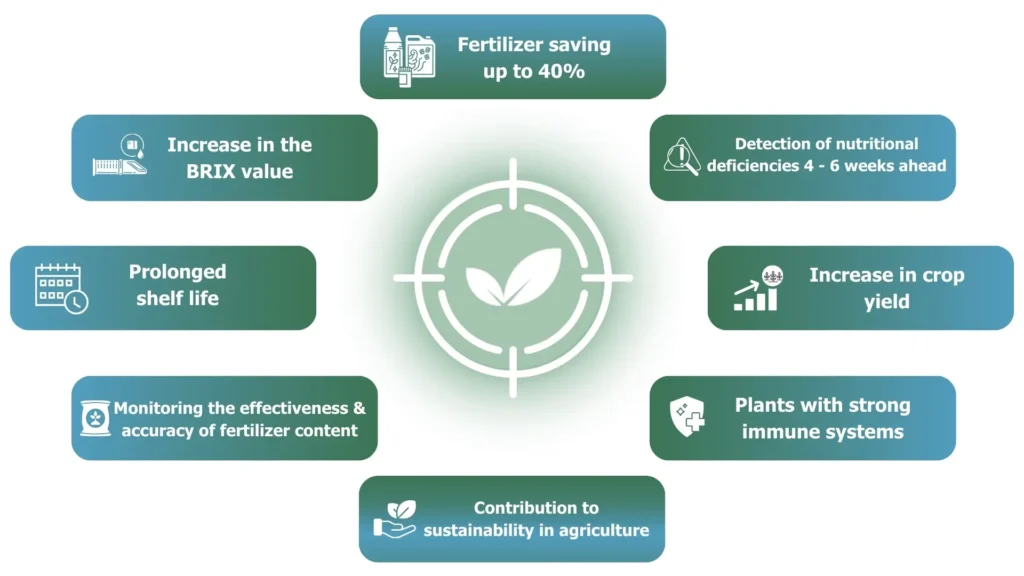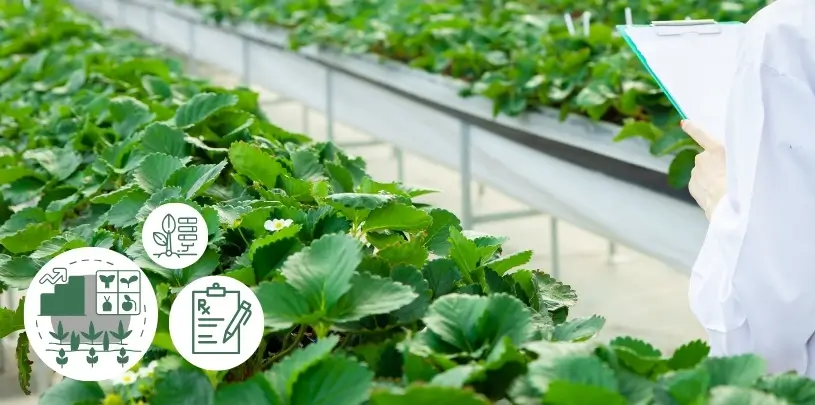In the world of farming, where efficiency and optimization dictate success, understanding the nutritional needs of crops in real-time is paramount. Plant leaf analysis has emerged as a crucial tool in the agricultural sector, providing immediate and precise insights into the health of crops. This innovative method offers farmers a way to optimize nutrient management, leading to healthier plants and more abundant harvests. Here are five reasons why plant leaf analysis is indispensable for farmers:
1. Immediate Nutritional Insights with Plant Leaf Analysis
Plant leaf analysis gives farmers a direct look into the nutrient levels within their crops, offering real-time data that is critical for making timely and informed decisions. This means nutrient deficiencies or diseases can be identified and corrected before they impact plant growth.
2. Customized Nutrition Plans
Every crop has unique nutritional requirements that vary throughout its growth stages. Leaf analysis allows for creating customized nutrition prescriptions, ensuring crops receive exactly what they need when they need it, maximizing efficiency and crop health.
3. Enhanced Yield and Quality
The primary goal of every farmer is to maximize both the yield and quality of their crops. Plant leaf analysis directly contributes to this by ensuring optimal nutrient availability, which in turn supports healthier plants capable of producing higher yields of superior quality.
4. Economic Efficiency
By pinpointing the exact nutrient needs of crops, farmers can significantly reduce the wastage associated with blanket fertilization practices. This precision leads to substantial savings on fertilizer costs and minimizes the environmental impact of farming operations.
5. Preventive Approach to Plant Health
Nutrient imbalances can predispose crops to diseases and pest infestations. Through early detection and correction of these imbalances, plant leaf analysis acts as a preventive tool, enhancing the overall resilience of crops.
Introducing Yapraq: The Future of Farming

Amidst the myriad benefits of plant leaf analysis, Yapraq stands out as a pioneering solution designed to leverage this technology to its fullest potential. Yapraq brings a suite of benefits that transform crop management:
- Up to 40% Savings on Fertilizer Costs: Yapraq’s precise analysis and tailored nutrient prescriptions ensure that farmers spend less on fertilizers while achieving better results.
- Healthier Plants with Optimal Nutrition: By providing specific insights into the nutritional needs of crops, Yapraq guarantees healthier plants that are better equipped to reach their full productive potential.
- Increased BRIX Value: With Yapraq, farmers can achieve higher BRIX values, indicative of sweeter, more nutritious produce, enhancing marketability and consumer satisfaction.
- Fortified Immune Systems: Optimal nutrition fosters stronger plant immune systems, reducing the incidence of disease and the reliance on chemical controls.
- Higher Crop Yields: Yapraq’s targeted approach to nutrition supports maximum yield potential, ensuring that farmers get the most out of their land and labor.
- Extended Shelf Life: Produce with balanced nutrition not only tastes better but also lasts longer, reducing post-harvest losses and increasing profitability.
- Contribution to Sustainability: By optimizing nutrient use and improving plant health, Yapraq aids in the transition towards more sustainable agricultural practices, benefiting the environment and future farming generations.
Yapraq represents a major advancement in agricultural technology, offering farmers an unparalleled tool for improving the efficiency, yield, and sustainability of their farming operations. Embrace the future of agriculture with Yapraq: Leaf Analysis, and experience the transformative impact of optimized plant nutrition.

